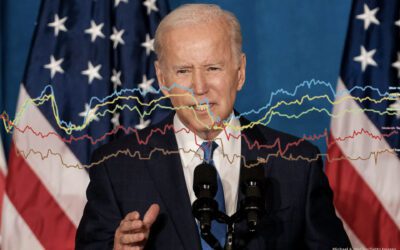By Stan Greenberg & Page Gardner. This appeared on The Hill’s Congress Blog on February 3, 2016.
These are days of rage in American politics. Americans believe that the political and economic systems are rigged against them, that the government works only for the wealthy and that billionaires are buying elections. They believe experienced politicians are part of the problem, that the status quo has got to go, and their anger is fueling the success of outside candidates. That rage will shape the 2016 election ahead.
But it is time for progressives to see this as an opportunity, rather than a problem. If they do not get it, they will miss an opening to galvanize the great majority of Americans who are increasingly hungry for change. Coupled with this rising impulse is a demand for bold reform of how America does politics. Understanding this dynamic may be the difference between winning and losing this year, and could spark a transformation in the way we run elections and our government.
The Rising American Electorate — the combination of unmarried women, people of color and millennials—makes up the majority of eligible voters and this year, for the first time in history, could comprise the majority of votes cast in a national election. This year the Rising American Electorate will be voting for change. Many of them, particularly white unmarried women, stand out as among those most disaffected with the direction of the country, and share a lot of emotions with white working class women and men, the first audiences for the candidates of rage. They all crave fundamental government and political reform and are likely to vote for candidates who share their alarm and frustration, according to recent research conducted by Democracy Corps and the Women’s Voices Women Vote Action Fund.
Over the course of last year, other major polls confirmed deepening voter belief in the need for reform. In November, a Pew Research Center poll found 59 percent of voters saying the government needs “very major reform,” up from 37 percent in 1997. A June New York Times/CBS News poll found a stunning 98 percent believe campaign financing needs changing – with 85 percent saying that the system needs fundamental changes or to be rebuilt completely.
Tapping into this desire for reform and acknowledging the need to end the influence of special interest money in elections and reduce waste in government — in combination with an agenda that helps working families — brings core constituencies including swing and Independent voters into the 2016 conversation. It also produces significant shifts in the electorate and helps address three big challenges:
- Closing the enthusiasm gap: Our December 2015 Democracy Corps/WVWVAF poll showed unmarried women, millennials and people of color significantly less excited about the election than older, white, conservative voters.
- Ensuring unmarried women and millennial voters turn out in numbers large enough to drive wins not just in the presidential race but in Congressional and other races on the ballot too—a result that will help achieve their policy interests and goals.
- Seizing the opportunity to align and find common cause with white working class women.
We believe these challenges can be overcome by adopting a narrative that puts a middle class agenda at the center of the economic debate and leads the conversation with an embrace of reform: reform of BOTH politics and government.
Many candidates from the highest level down have embraced a bold work and family agenda that aims to level the playing field for the middle class. The agenda includes policies that protect Social Security, make college affordable and cut student debt and help working families with child care, paid sick days and equal pay for women.
But to engage, excite and increase turnout of progressive, independent and swing voters, these Americans must see that the parties and candidates themselves are enraged by the crony capitalism that is denying ordinary citizens a voice and a government that works for special interests, not taxpayers. That is why progressives must embrace upfront the call for systemic political and government reform that includes barring corporate and secret contributions, ensuring taxpayers get their money’s worth and rooting out waste.
It is this sequencing of the message, starting with the demand to fix what’s broken, that captures voters’ attention and produces big increases in enthusiasm. In our most recent poll, 62 percent of Rising American Electorate voters described themselves as very enthusiastic about voting in 2016, up from 56 percent after hearing the linked reform/middle class agenda message. The message also produced a 10-point increase among millennials.
Progressives should welcome the rage about politics because this momentum can be translated into electoral and policy changes. Messaging that combines a core progressive economic message with a powerful statement on reforming our politics and our government produces significant changes in the electorate that, if fully realized, could lead to increased voter participation and convert voter anger into positive action that starts to repair our political system and government. This year and this election might just be the moment when voters’ outrage triggers a new age for our nation, when our democracy delivers on the promise of majority rule.




